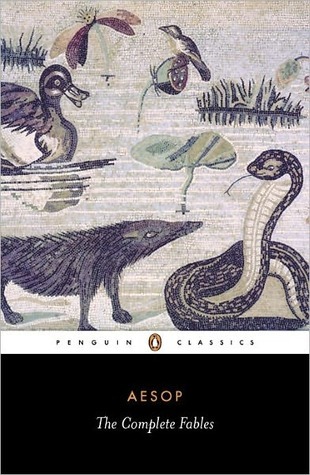More on this book
Community
Kindle Notes & Highlights
This story shows that if you betray friendship, you may evade the vengeance of those whom you wrong if they are weak, but ultimately you cannot escape the vengeance of heaven.
Just so, to compete with the powerful is not only not worth the effort and labour lost, but also brings mockery and calamity upon us.
‘I would certainly be foolish if I let a meal go which I already have in my talons to run after something else which I haven’t yet seen.’
Men are foolish who, in hope of greater things, let those which they have in their grasp escape.
Thus, some people afflicted by a stroke of bad luck wish to avoid the place where the misfortune occurred.
This fable shows that people do not hesitate to pledge the impossible when they are desperate.
This fable shows that the nature of something is seen straightaway.
This fable shows that someone with a wicked nature who is determined to do wrong, when he cannot do so in the guise of a good man, does his evil deeds openly.
This fable shows that sensible men, when they have put to the test the wickedness of certain people, are no longer taken in by their falseness.
It is thus that sensible people are wise to the tricks of the wicked, despite all of their pretence at honesty.
When the fault is evident it is impossible to conceal it.
Whosoever schemes against others owes his own misfortune to himself.
‘All the more reason for us to be suspicious. For if you treated us, mere newcomers, better than your old flock, it’s quite clear that if some other goats came along you would then neglect us for them.’
This fable shows that one ought not to welcome the over-friendly advances of new acquaintances in preference to old friendship. We must remember that when we have become old friends they will strike up friendships with others, and those new friends will become their favourites.
Thus, one must not become blinded by pride when one is enriched by shameful means, especially when one is of low birth and without beauty.
This fable shows that if you try and mock those who are smarter than you are, the retort will be that much sharper.
This fable shows that the Lord resisteth the proud but giveth grace unto the humble.
Thus it is that what skill denies us, chance often gives us freely.
Neither should we delude ourselves into always expecting the same success, considering how changeable life is. But we should tell ourselves that there is never such good weather that a storm might not follow.
Some people always do things at the wrong moment.
This fable shows that it is foolish to forfeit the profit that is in one’s hand upon the excuse that it is too small.
It is thus that some men, through fear of their enemies, come to rely upon supposed friends who are even more dangerous to them than their enemies were.
This fable shows that time resolves difficulties.
Similarly, certain people, not being able to run their affairs well because of their inefficiency, blame the circumstances.
One could apply this fable to men who make protestations of virtue but who actually behave like rascals.
It is thus that sensible men should not undertake any action without having first examined the end result.
‘Hey, friend! If it wasn’t in your own interest you wouldn’t be giving us this advice!’ This fable concerns those who give advice not out of kindness but through self-interest.
It is thus that the little things reveal the big things, and that the things which are visible reveal those which are hidden.
It is thus that a wicked nature is often recognized by its exterior.


